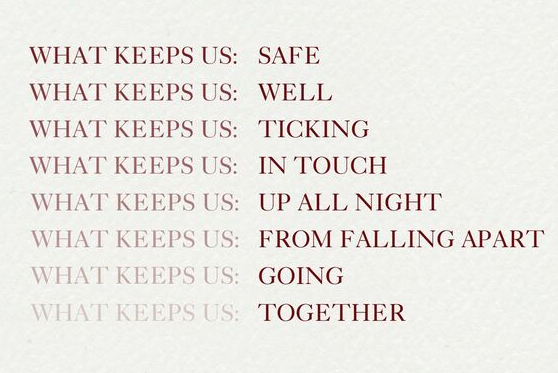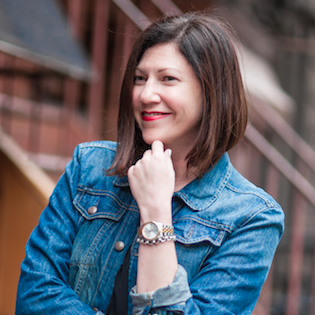As the director of Shore Lit, a literary arts organization based on the rural Eastern Shore of Maryland, I spend a lot of time thinking about the unique ways rural communities can foster literary conversation. My small town will never have the number or variety of readings a city can support, for example, but I have discovered that less can be more. Small towns require you to approach everyone as a neighbor. As a result, people show up to Shore Lit events offering thoughtful attention, respect for others’ voices, and genuine openness to the work being discussed. We are able to build community around literature because we understand that it gives us chance to connect.
This neighborly attitude informs Shore Lit’s programming, as well. I try to stay tuned in to the conversations happening around me, and to create literary events that respond. Like the rest of the world, the Eastern Shore has been seeing the images of violence and reports of destruction of the past several months. I wanted to offer a meaningful and respectful way to bear witness to this suffering, and believe poetry can help us in this moment.
Poetry defamiliarizes experience, culls our attention, slows the pace of our thinking, rises above the exigence of politics. It’s a capacious genre that way. Reading poetry is a practice of holding space for lives that aren’t our own. It offers us intimate glimpses of small moments, things that are otherwise inexpressible, and in this way reminds us of our humanity.
Taking its title from “What Keeps,” by the late C. D. Wright, “What Keeps Us: A Community Poetry Reading in Response to Violence” is about bearing collective witness. Community members are invited to read aloud a poem from the collection below, which I have curated in collaboration with the Poetry Daily editorial review committee, or to sit in intentional silence. Many of these poems are taken from the 365 poems featured on Poetry Daily over the past year. All are meant to offer sustenance.
I invite you to adapt this idea for your own community in any way that feels appropriate: host a reading of your own. Read the poems aloud at your holiday table. Email one to a friend or neighbor. Or simply read the collection to yourself in a quiet moment. However you engage with this collection, I hope it keeps you this holiday season.
POEMS
[Obake Obachan], Bret Yamanka
The Triumph of Song, Rowan Ricardo Phillips
Téssara, Nathalie Handal
Old Song, Patrick Phillips
Traces, Matthew Shenoda
Forefather, Glenis Redmond
Findspot Unknown, Peter Gizzi
Let It Go, Mariana Berenice Bredow Vargas, trans. Forest Gander
Heart Butte, Montana, M.L.Smoker
Tamar, Susan Wicks
Charleston, Afaa Weaver
Yet Another Poem at Solstice, Richard Forester
The Bell, Brandon Shimoda
What Keeps, C.D. Wright
Upacking a Globe, Arthur Sze
Hope, Czeslaw Milosz
Souvenir of the Ancient World, Carlos Drummond de Andrade, trans. Mark Strand
Blessing the Boats, Lucille Clifton
A Glimpse, Walt Whitman
Two Countries, Naomi Shihab Nye
[Hope is a strange invention—], Emily Dickinson
Ode to Drinking Water from My Hands, Ross Gay
*
We asked the readers from our editorial committee who collaborated with Kerry Folan to write a brief statement about what they were looking for as they selected poems from the past year and beyond for this feature. Here’s what they wrote:
Katey Funderburgh: Poetry has always taught us how to love, which means that it’s always taught us how to grieve. I searched for poems that held love and loss in one hand.
Trisha Nguyen: I searched for poetry that went in hand with the changing seasons and how quickly time passes us.
Pari Sabti: I wanted to share poems that reminded me of the individual. When I get lost in the scale of everything going on in the world, it’s poetry that grounds me back in how important smallness is.
Katherine Harnisch: I seek poetry that shines light on hope in the midst of grief, in all of its forms.
Summer Reardon: I seek poetry that differs from my own experiences but is still able to resonate with me.
Taylor Thiel: I was looking for poetry that offered hope as a radical response to grief and tragedy, poems that made me believe a better world is possible.
Kerry Folan: Poetry helps me to make sense of the paradox of human experience; how utterly insignificant our joy and suffering are in the scope of the universe, and, at the same time, how totally enormous.
Ross Creason: I look for poetry that learns from the natural world, how relationships in ecosystems can teach us about our own communities.
Judy Leserman: I look for poetry that holds space for the connection we can tap into in what can potentially be isolating moments of loss.
Eli Vandegrift: I’m drawn to poems that open up worlds, engage with natural or unnatural environments, animals or mythological figures, or explore the inherent queerness of desire and the body.
Pamela Hines: Poetry opens a space for me to think differently, to look outside of my daily life, and to bring together ideas in unexpected ways.
Brett Yamanaka
Practicum Quote:
Read Poem
Slide 2 Heading
Lorem ipsum dolor sit amet consectetur adipiscing elit dolor
Click Here
Slide 3 Heading
Lorem ipsum dolor sit amet consectetur adipiscing elit dolor
Click Here
Previous slide
Next slide




